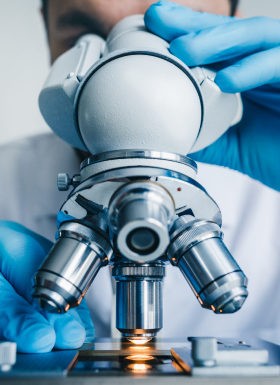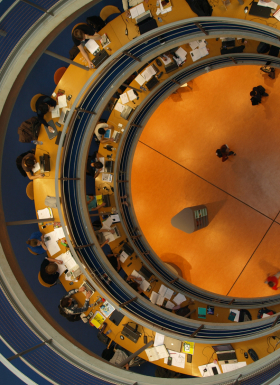Welcome to the Doctorate Program in Engineering and Technological Development in Industrial, Biomedical and Computational Applications
This programme aims for students to develop scientific and research methodologies under an engineering approach by means of computational modelling tools and the development of new materials, products and devices. They will acquire specific, advanced knowledge on different aspects of the application of technologies in different fields of engineering, such as industrial, energy and biomedical engineering.
The Engineering and Technological Development in Industrial, Biomedical and Computational Applications Programme combine the following pedagogical approaches, all of which are complementary and necessary in the student’s training:
- Scientific and research training in different disciplines and developing skills in the systematic application of scientific methods in the development of new materials, devices and services.
- Integration in the productive and business sector, facilitating skills acquisition for technology transfer and competitive development.
GRADUATE PROFILE
The ongoing advance of technologies requires the researcher to be able to deal with and master a very broad set of theoretical principles, scientific methods and formal instruments that enable him/her to carry out work dominated by innovation, technological development and research. The current level of education and science in a knowledge-based society requires ever higher qualifications. Companies have increasingly employed R&D&I activities to make themselves more competitive in the marketplace. As a result, there is a need for human resources to be well-trained in research competences in the field of engineering, as well as specialists in their application, enabling the development of new technologies for materials, devices and services.
The Engineering and Technological Development in Industrial, Biomedical and Computational Applications programme prepares future graduates to master transversal training in research skills and specialisation in activities of high technological content in its different lines of research.
PARTNERSHIP AGREEMENTS
Research collaborations with entities or institutions
- International Research Professorship/Chair “Real-Time Control for Manufacturing Process Simulation” ESI-GROUP.
- Fuel Cells Network MINECO
- AEROX Advanced Polymers.
- Research Laboratory for Fluid Dynamics and Combustion Technologies (LIFTEC).
- Offshore Renewable Energy Catapult Research Centre (ORE Catapult).
- Institute of Design for Automated Manufacturing (IDF), at the Polytechnic University in Valencia.
- INEGI – Institute of Science and Innovation in Mechanical and Industrial Engineering, Porto, Portugal.
- NOKIA.
- Werium SL.
- Ford Motor Company.
- MindCaps SL.
STUDENT AND TEACHER EXCHANGE ORGANISATIONS
| COUNTRY | UNIVERSITY | TYPE OF AGREEMENT |
|---|---|---|
| Uruguay | Universidad de la República UDELAR | Bilateral |
| Bélgica | Université Catholique de Louvain-la-Neuve | Erasmus |
| Chile | Universidad del Desarrollo de Chile | Bilateral |
| Italia | Universitá degli Studi di Cagliari | Erasmus |
| Reino Unido | The University of Edinburgh | Erasmus |
| Uruguay | Universidad de la República UDELAR | Erasmus |
| Alemania | Universität Tübingen | Erasmus |
| Bélgica | Université de Louvain | Erasmus |
| Bélgica | Université de Liège | Erasmus |
| Brasil | Universidad de Campinhas | Bilateral |
| Chile | Universidad Santo Tomás de Santiago de Chile | Bilateral |
| Francia | Universitè Paris Sud | Erasmus |
| Italia | Universita degli studi di PERUGIA | Erasmus |
| Italia | Università degli studi di Urbino | Erasmus |
| Italia | Universitá degli studi di Modena e Reggio Emilia | Erasmus |
| Italia | Universidad degli studi di Torino | Erasmus |
| Reino Unido | King´s College London | Erasmus |
| Suiza | Université de Genéve | Bilateral |






